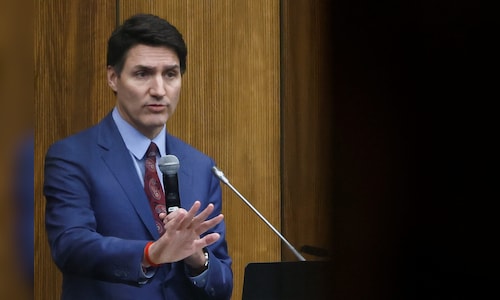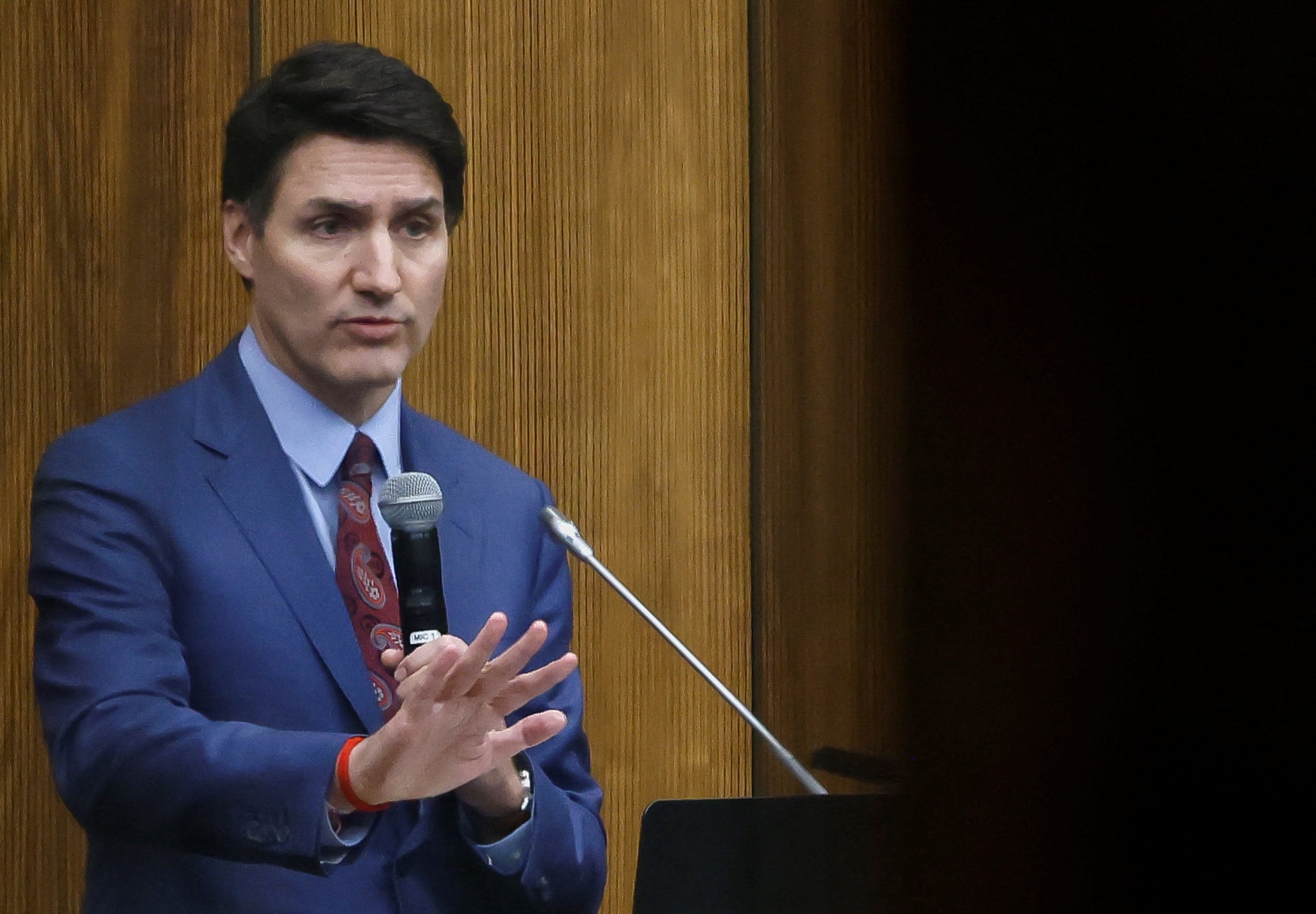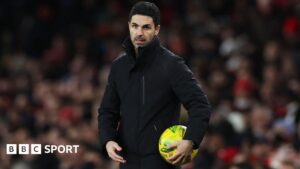

His resignation marks a significant turning point in Canadian politics, with implications not only for the country’s internal affairs but also for its diplomatic relations, particularly with India.
In an interview to CNBC-TV18, Vikas Swarup, former Indian High Commissioner to Canada emphasised Trudeau’s handling of the India-Canada relationship was a defining factor in the escalating tensions between the two countries, with the blame squarely placed on the Prime Minister himself.
“The fight between India and Canada was never between India and Canada, it was between India and Prime Minister Trudeau,” Swarup explained, referring to the controversy surrounding Trudeau’s allegations of India’s involvement in the assassination of Khalistani separatist leader Hardeep Singh Nijjar.
Swarup emphasised that under Trudeau’s leadership, Canada-India relations had reached their lowest point in decades. However, Swarup noted that while the Liberal Party might continue to maintain policies under a new leader, the fundamental dynamics of Canada-India relations could shift significantly once the party is out of power. “If the current opinion polls hold, the Liberal Party is likely to lose in the next election, paving the way for a substantial change in ties,” he said.
Below are the excerpts of the interview.
Q: What was the final nail in the coffin for Justin Trudeau?
Swarup: The final nail in the coffin was the revolt by his entire caucus. The Atlantic caucus, the Quebec caucus, and the Ontario caucus all revolted against Trudeau after the resignation of Chrystia Freeland in the middle of December. The writing on the wall was very clear. Since he did not enjoy the support of the majority of his parliamentarians, it was completely untenable for him to continue as the Liberal Party leader and as the Prime Minister of Canada.
Q: If we were to ask you about the other contenders within the Liberal Party, there are four or five cabinet colleagues of Justin Trudeau who are possible contenders to lead the party in the next election. Who do you think could be the frontrunner in the pack and how would the relationship between the Liberal Party in Canada and India be going forward?
Swarup: The relationship between India and Canada deteriorated entirely because of Justin Trudeau. And if you look at the statements that were made by the Ministry of External Affairs, they laid the blame entirely on Prime Minister Trudeau. The fight between India and Canada was never between India and Canada; it was between India and Prime Minister Trudeau. Now that Prime Minister Trudeau is on the verge of leaving, relinquishing office, there would be a change in, let’s say, optics at least, if not the substance because as long as the Liberal Party remains in power, I suppose they will continue to follow the same policies vis-à-vis India that Justin Trudeau did. But once the Liberal Party is booted out of power and is very likely in the next election if the present opinion polls are to hold, then we will see a fundamental and substantive change in India-Canada ties.
You asked the question about who are the frontrunners. As per the reports that we have all read in the newspapers, the frontrunners are Chrystia Freeland, the former finance minister, who resigned in protest over Trudeau’s moves to distribute largess, which she thought was profligate spending. Then there is François-Philippe Champagne, another current minister. There is Dominic LeBlanc, who is the closest confidant of Prime Minister Trudeau and is the current finance minister.
Another dark horse being named is Anita Anand, who is an Indian-origin person in the Trudeau cabinet. But I sense that if anybody who is associated with the Liberal Party takes over the reins, it will be pretty much the same thing. And it will not reap any electoral dividends to the Liberal Party.
Only if they bring in a complete outsider and one person who is rumoured to be wanting to throw his hat into the ring is Mark Carney. He’s a respected economist. He is the former governor of the Bank of England and also of the Bank of Canada. And if he puts his hat into the ring, then there might be a slight bump for the Liberals. But my sense is this is a poisoned chalice.
Everybody knows whoever the next Liberal leader will probably just have a month or so as prime minister because elections will be called when a no-confidence motion is introduced, which means that the new Liberal Party leader will have less than a month to prove himself or herself to the Canadian electorate. And I don’t think it will have too much of an impact on the results of the overall general election as and when it is held.
Q: What about 45-year-old Pierre Poilievre, the key Conservative leader? According to several polls, he is the frontrunner who could be the next Prime Minister. His approval ratings are as high as 90%.
Swarup: One of the reasons why Trudeau was able to continue for so long was that he was not liked, but the Canadian electorate did not like the Conservatives any better. And the Conservatives, the choices that they had made in terms of choosing the leaders, the Canadians were not enthused by them. But in Pierre Poilievre, I think they have found a real leader who was able to rally a majority of Canadians to his cause. He came into prominence after the truckers’ convoy.
And since then, his promises of cutting down taxes, of raising funds to provide Canadians with decent housing and on cutting down immigration, I think have resonated with Canadian voters. And as of now, he’s running pretty high in the polls and if those polls continue to hold he is going to be the next Prime Minister of Canada.
Q: Do you get a sense that India will have a chance to start things afresh with the new government in Canada considering under Trudeau our ties with Canada hit a complete rock bottom, the worst in decades because of Justin Trudeau’s policies and approach to India? Do you expect things to start afresh with the new government?
Swarup: India has always maintained that Canada is too important a country for us not to have good relations with it. It is a member of the G7; it is the third largest energy superpower in the world; it has the third largest oil reserves after Venezuela and Saudi Arabia and of course, we share common parliamentary traditions and liberal democracy. So there are all the more reasons not to discount the fact that almost 2 million people of Indian origin have made Canada their home, all these reasons are there for us to have a good relationship with Canada.
Unfortunately, Prime Minister Justin Trudeau, for his political ends, torpedoed the entire relationship. And that is why I sense that when the Conservatives come to power, then Pierre Poilievre would want to show that Trudeau destroyed the relationship with India and he’s going to rebuild it. And there are plenty of low-hanging fruit. For instance, the High Commissioners could be restored on both sides. The diplomats could be restored on both sides. And the court case relating to Hardeep Singh Nijjar could continue. But as we have seen with America, the court case is continuing, the judicial process is continuing, but cooperation between India and America is proceeding at a very fast pace.
Watch the video for more



